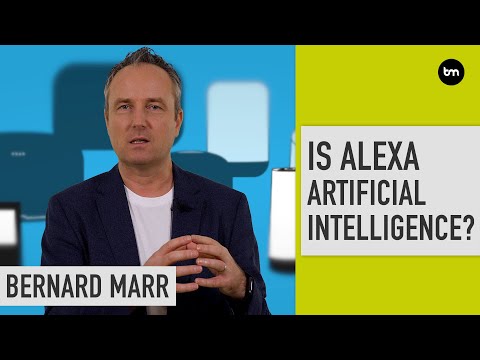Introduction
Who would not love to have personal assistants who not only keep track of your commitments and appointments but gets to know you better over time? And what if that assistant could simultaneously manage a range of tasks in your household? This scenario is no longer fiction. Smart home devices like Amazon Alexa have turned the dream of the all-seeing, all-knowing virtual assistant into a reality.
Alexa certainly makes use of advanced technologies to make her owners’ lives easier. The explosive growth in connected products is only one indicator of the success of digital voice assistants. But does Alexa represent artificial intelligence (AI) technology? Here is a closer look.
What Is Alexa?
For those readers who are not using Alexa yet, let us introduce this smart voice assistant. Alexa is nothing other than voice-controlled digital assistant software. She answers questions through Google searches, can order items online, or accept voice commands to create to-do lists.
Alexa also helps you set reminders for important appointments. As a tool, this virtual assistant is now closely integrated with other Amazon products, like the company’s smart speakers Amazon Echo and Dot. Alexa integrates with other smart home devices, too, allowing owners to control anything from lights to room temperature, and their favorite music through voice commands. Those are known as Alexa-enabled devices or Matter devices and include Amazon Fire TV.
Alexa AI Technology
Alexa is not the only smart home assistant available to consumers today. Like her smart device ‘colleagues,’ Google Assistant, and Siri from Apple, Alexa responds to user requests and executes those. To do that, all virtual assistants depend highly on AI technology. They also utilize automation and machine learning (ML).
AI is a large area of computer science. The term covers different fields that have one thing in common: they are home to scientists aiming to create systems that mimic human behaviors, such as learning. ML is a subfield of AI that is specifically concerned with enabling computers to learn without repeated human intervention. Machine learning models allow computers and other devices to learn from interactions between machines. Thanks to AI, computers are now able to complete tasks that require reasoning and perception without additional human involvement.
Since its inception, Alexa has become gradually smarter. She now understands follow-up questions in the context of previous questions and can handle different requests simultaneously. As a system, Alexa has become better at understanding its boundaries and knows when to ask for human help. As a result, error rates have dropped, and Alexa has become more usable.
These improvements are especially noticeable in Alexa’s automatic speech recognition and natural language processing (NLP) ability. In short, Alexa is becoming the perfect virtual assistant, making the technology a little more indispensable every day. Gone is the need for an artificial language. That change has automatically improved the customer experience.
Is Alexa AI?
With all that said, the question remains whether Alexa and her virtual assistant colleagues can be considered AI. They are certainly impressive examples of AI applications that are transforming our everyday lives.
Just a few years ago, we simply did not have access to technologies of the same level of sophistication. Computers that fit into a home were not able to process the amount of data AI needs to be effective. Thanks to unprecedented advances in computer technology, areas like natural language questions, natural language understanding, and generation are now some of the more commonly used subsets of artificial intelligence.
Does that make Alexa an AI? Not necessarily. Instead, Alexa is a system whose ability to function as an efficient assistant to its owners thoroughly relies on several forms of AI.




